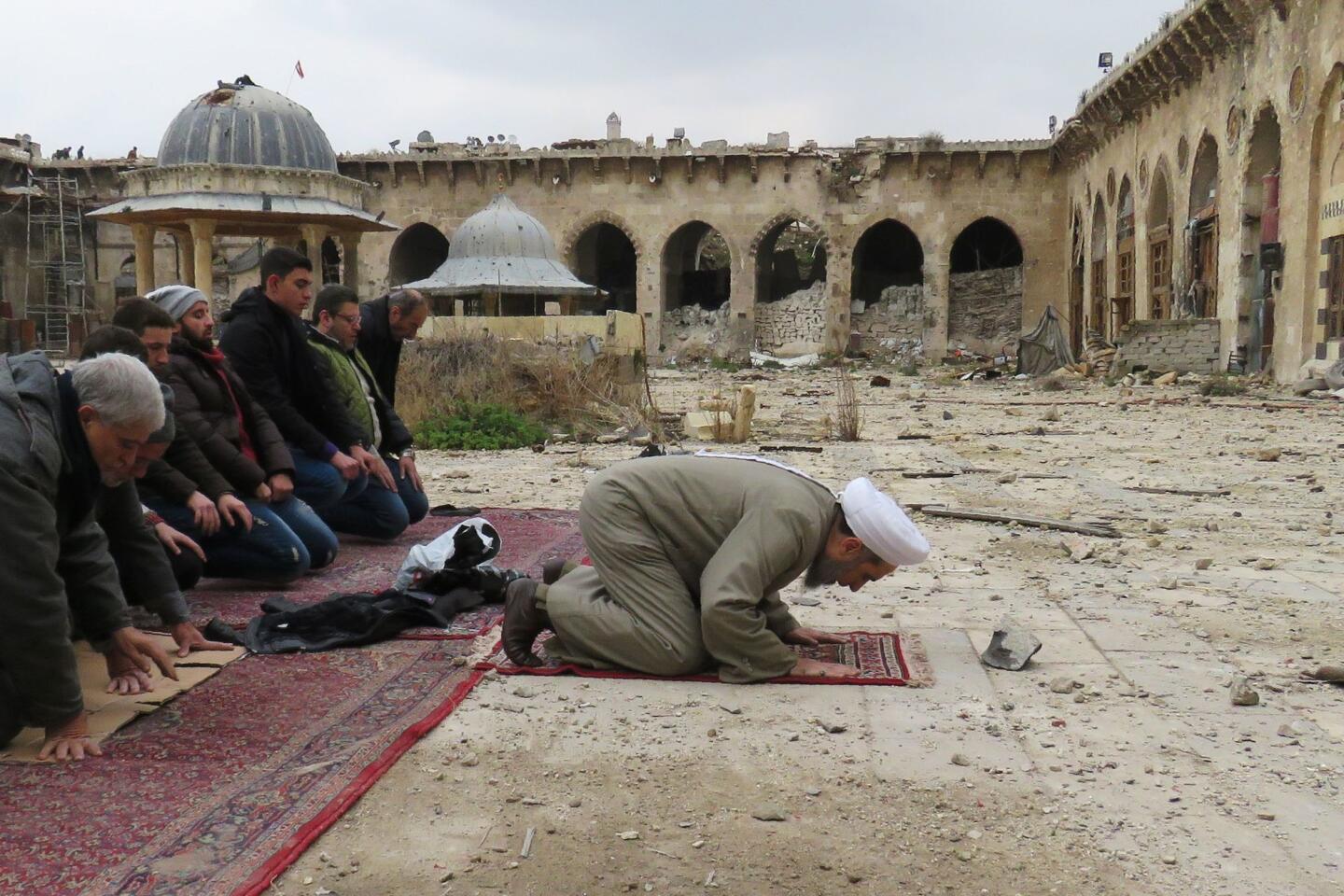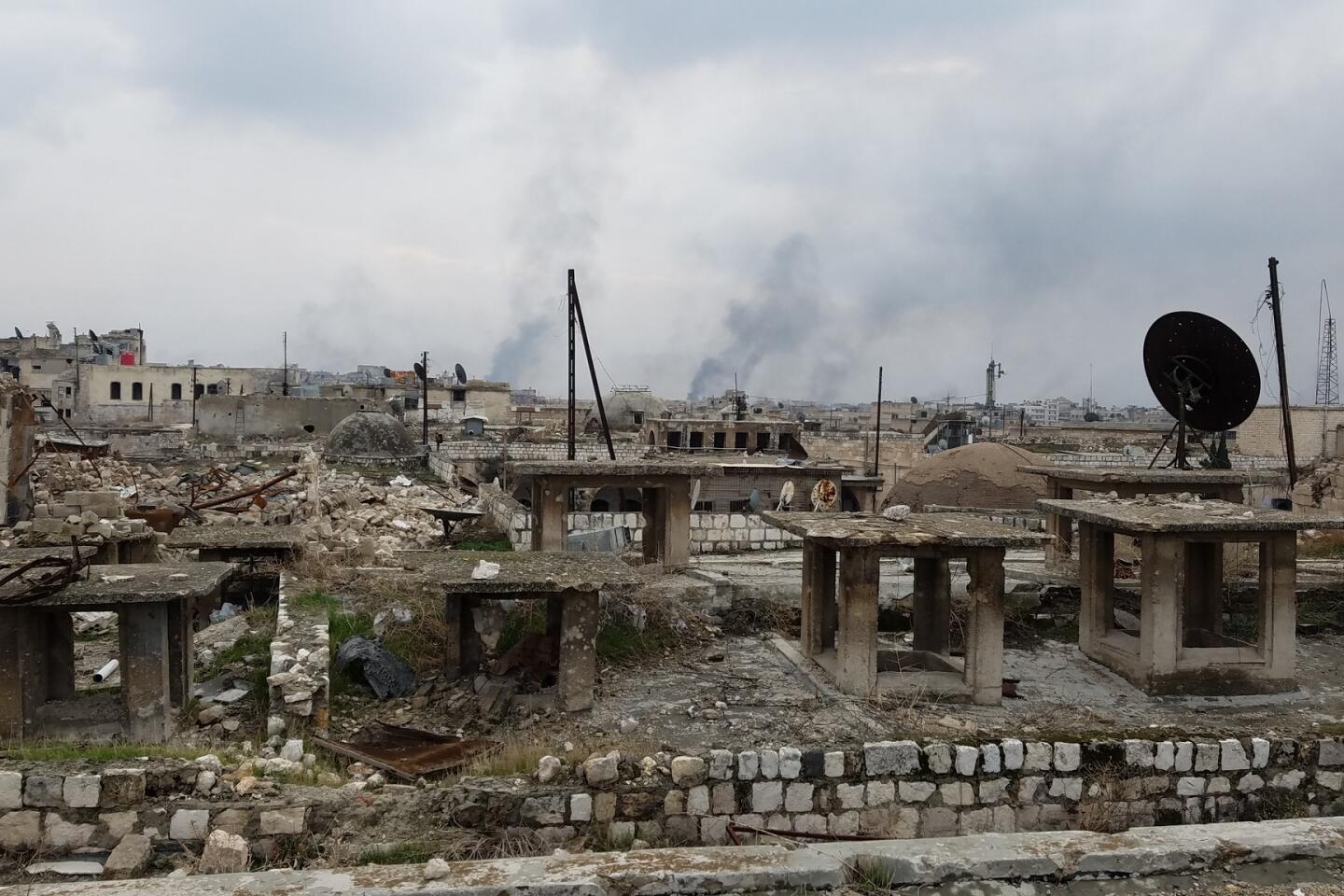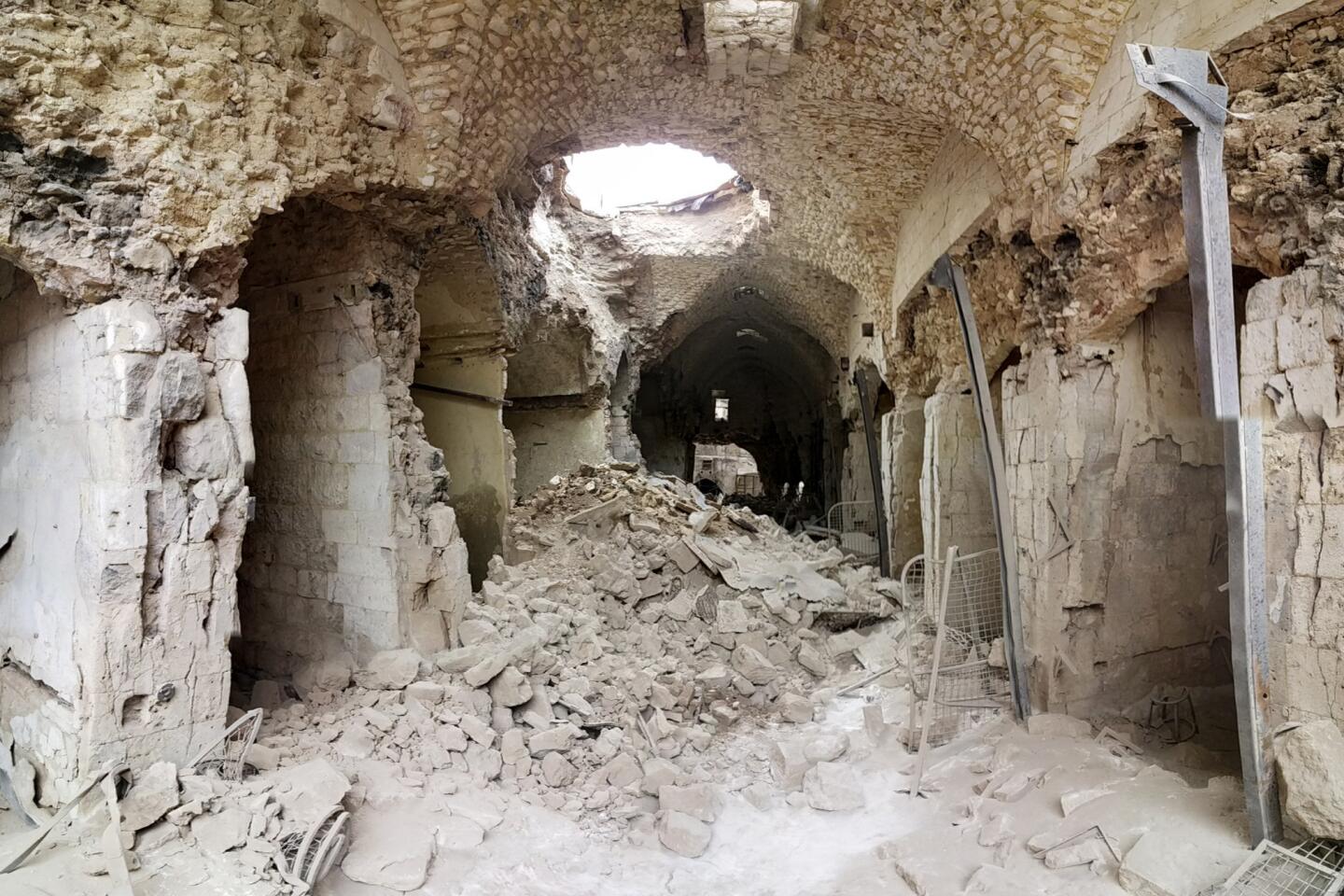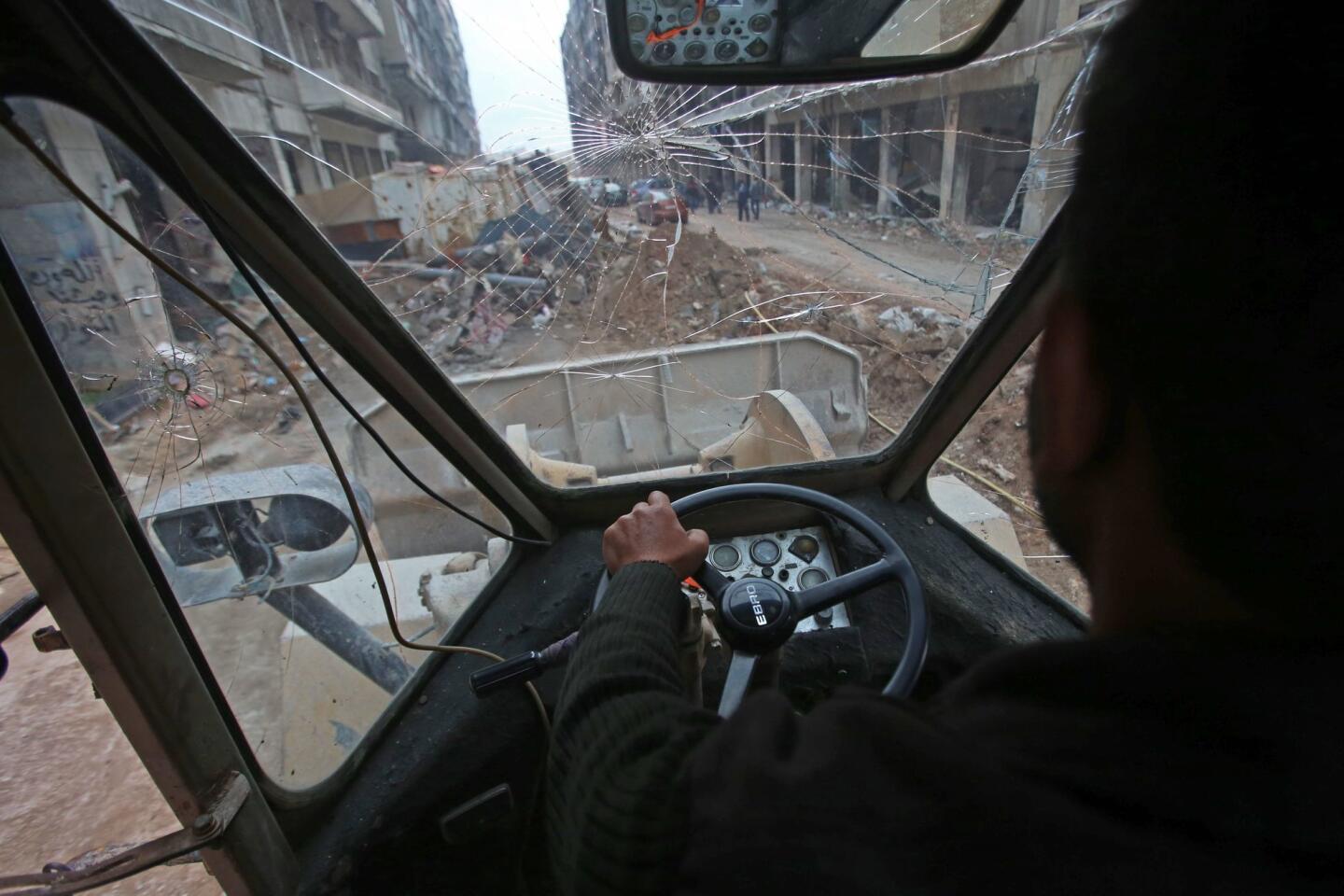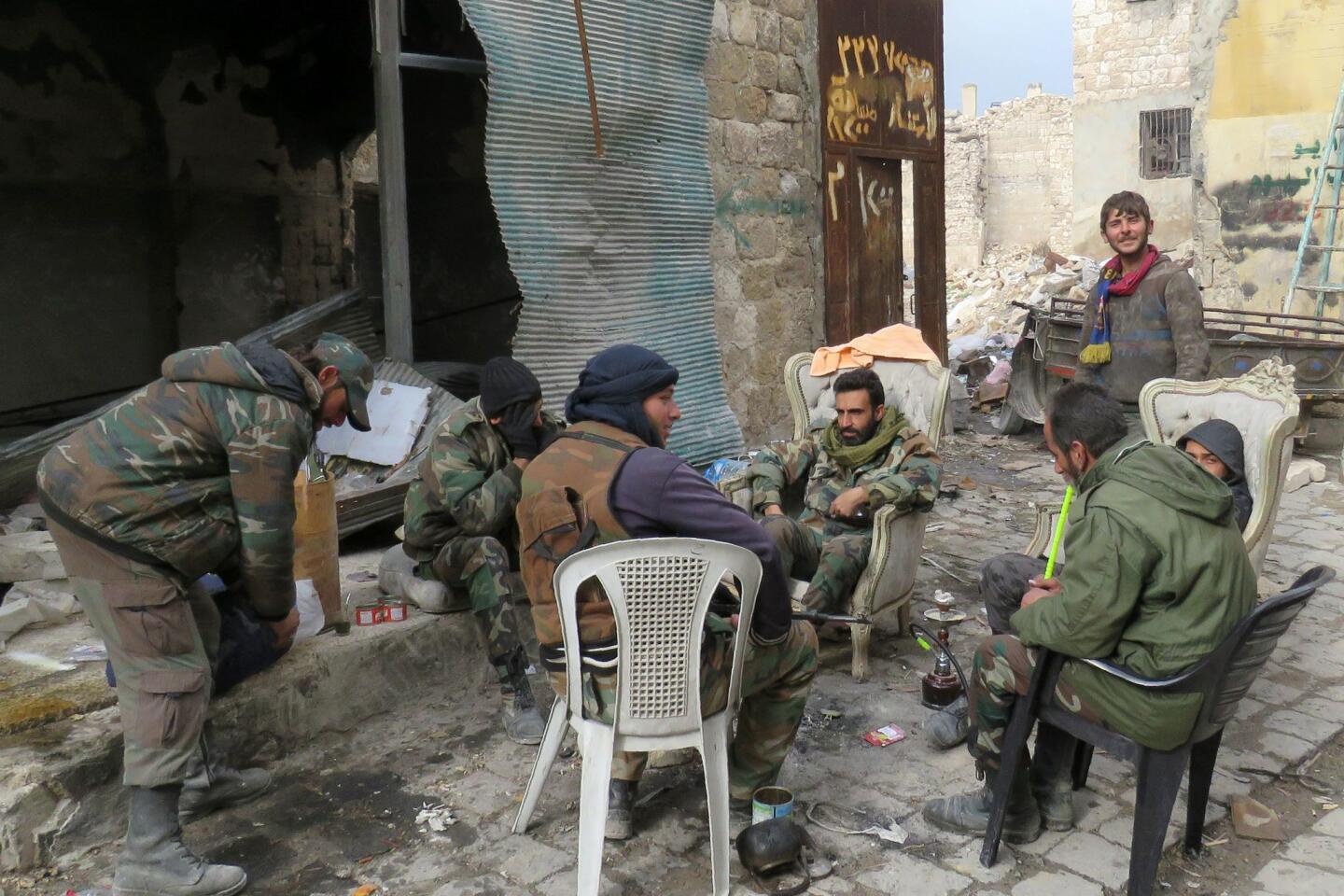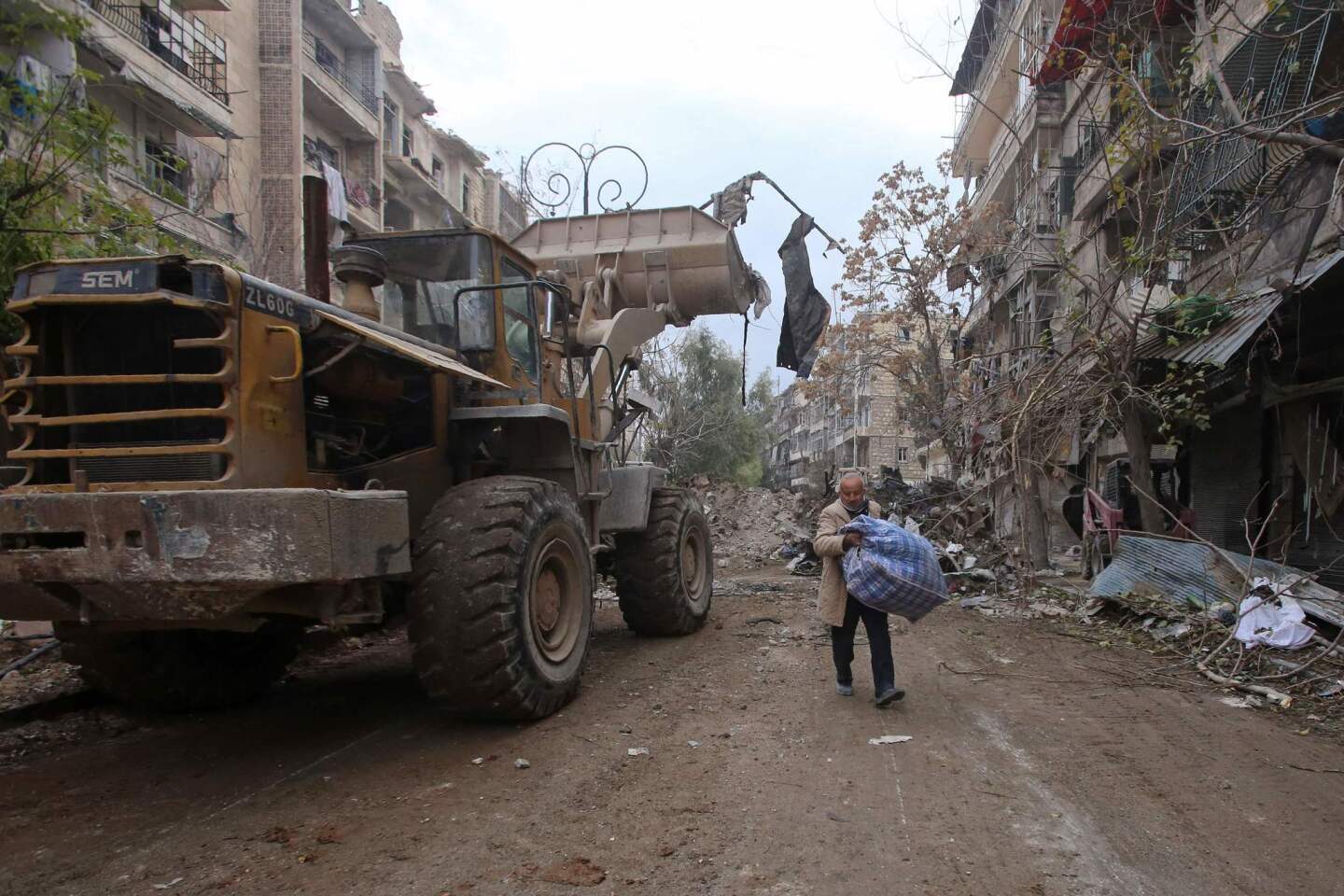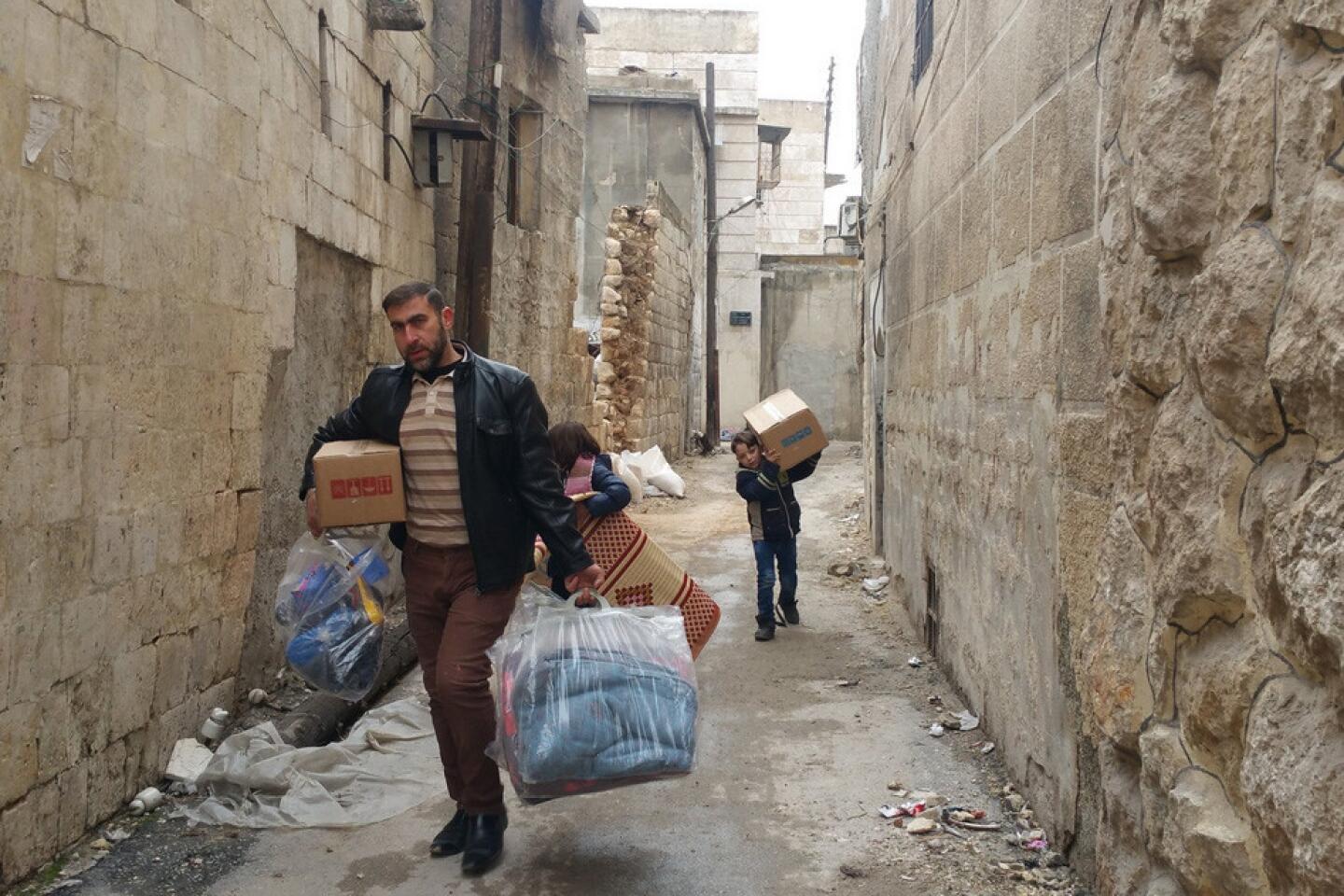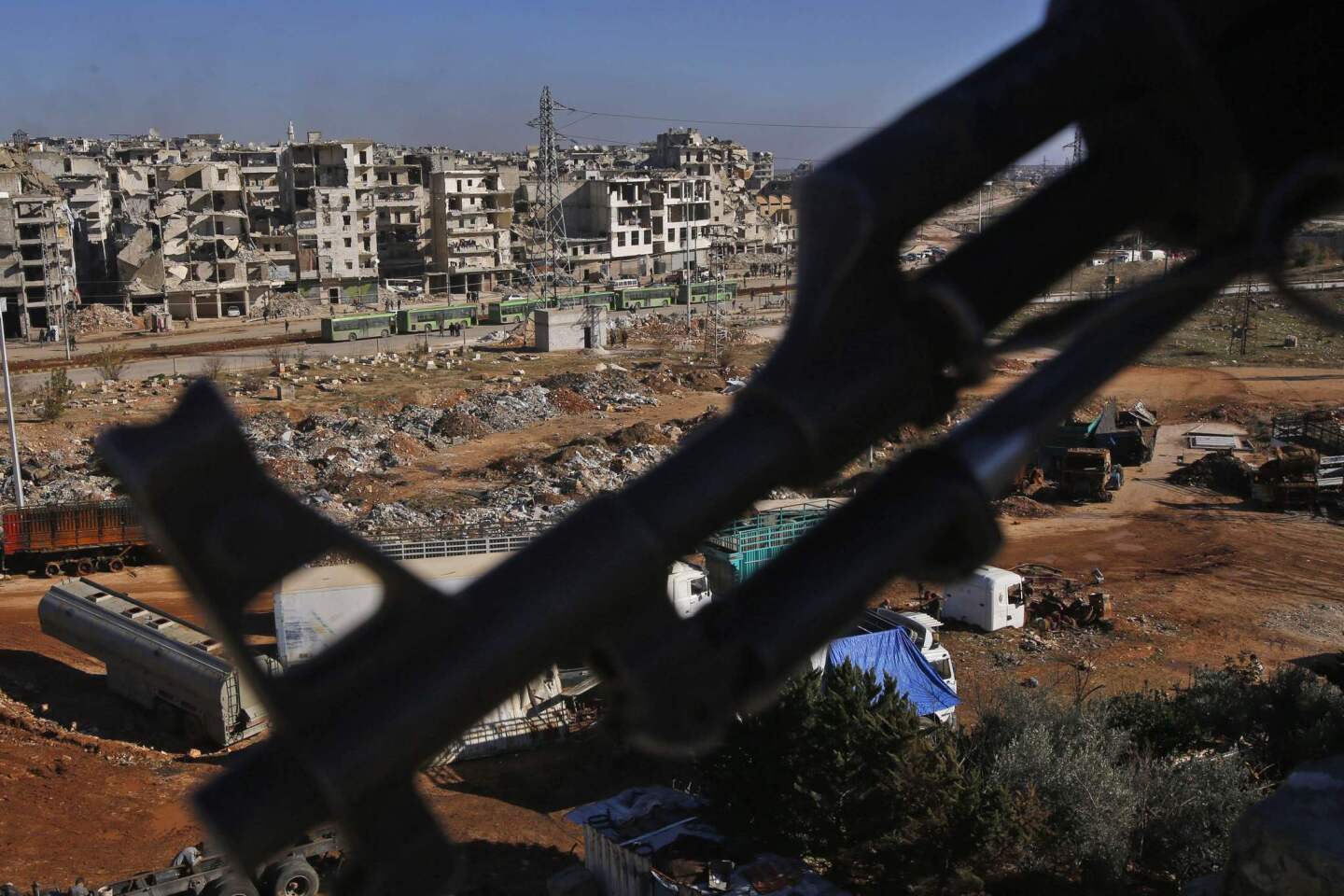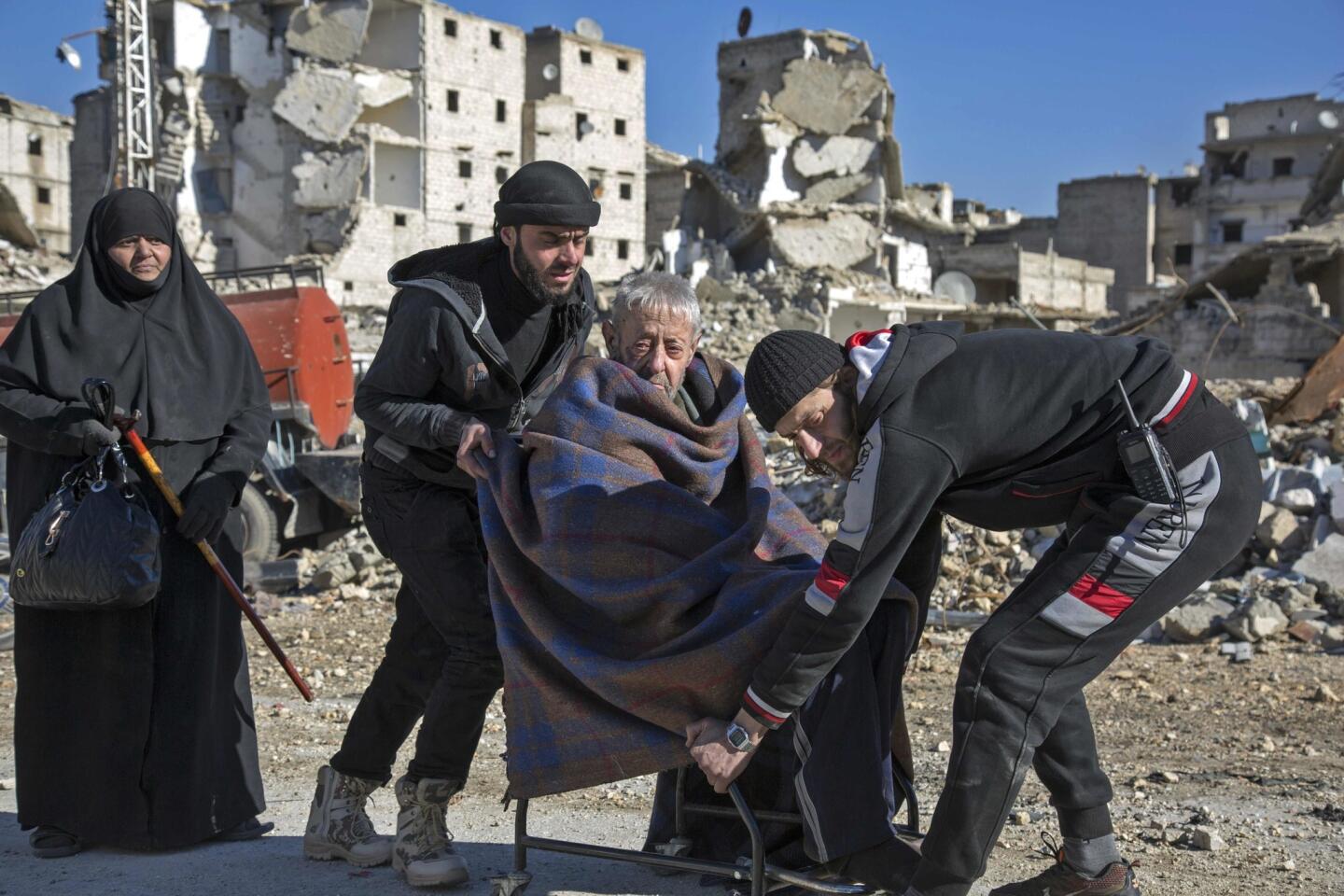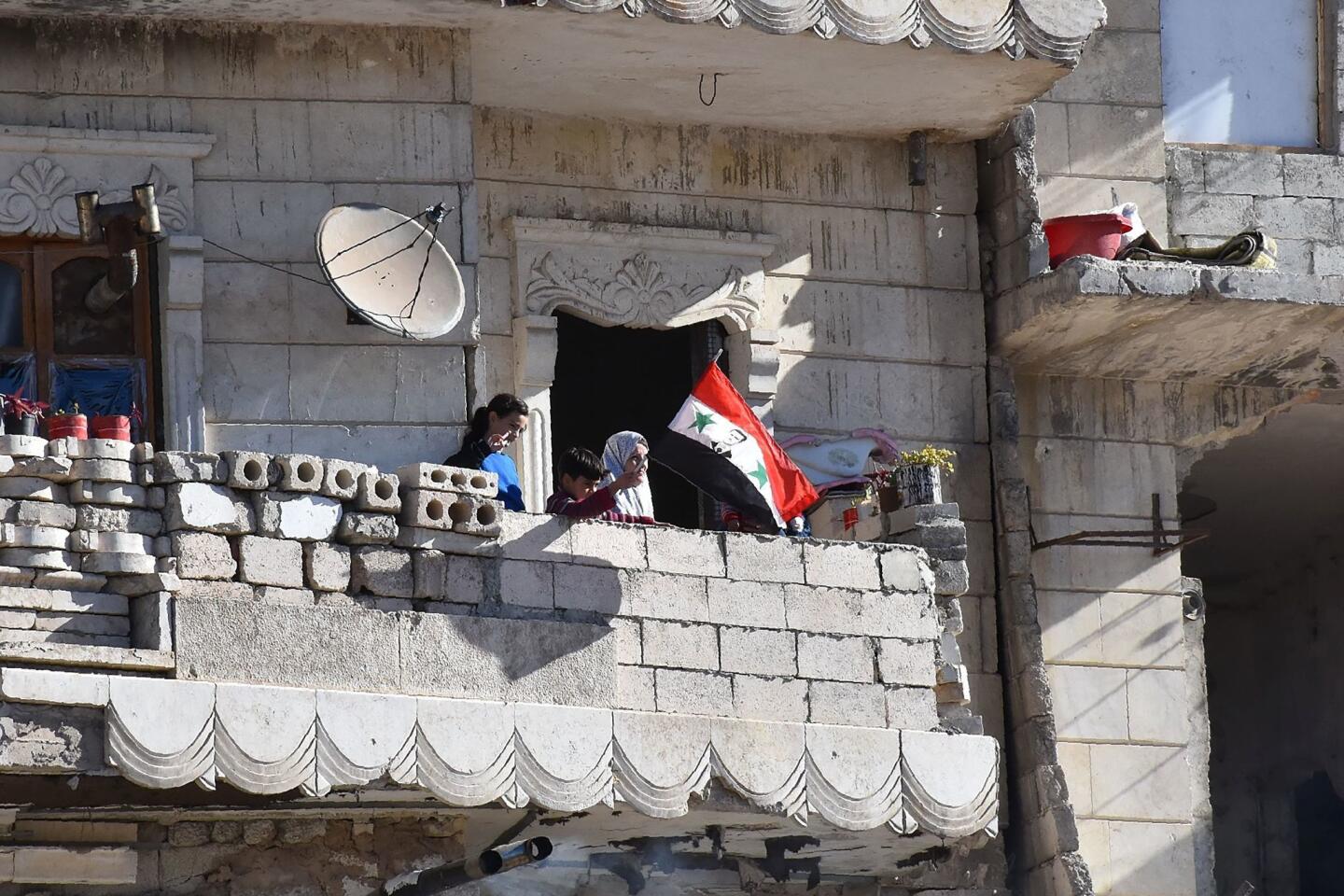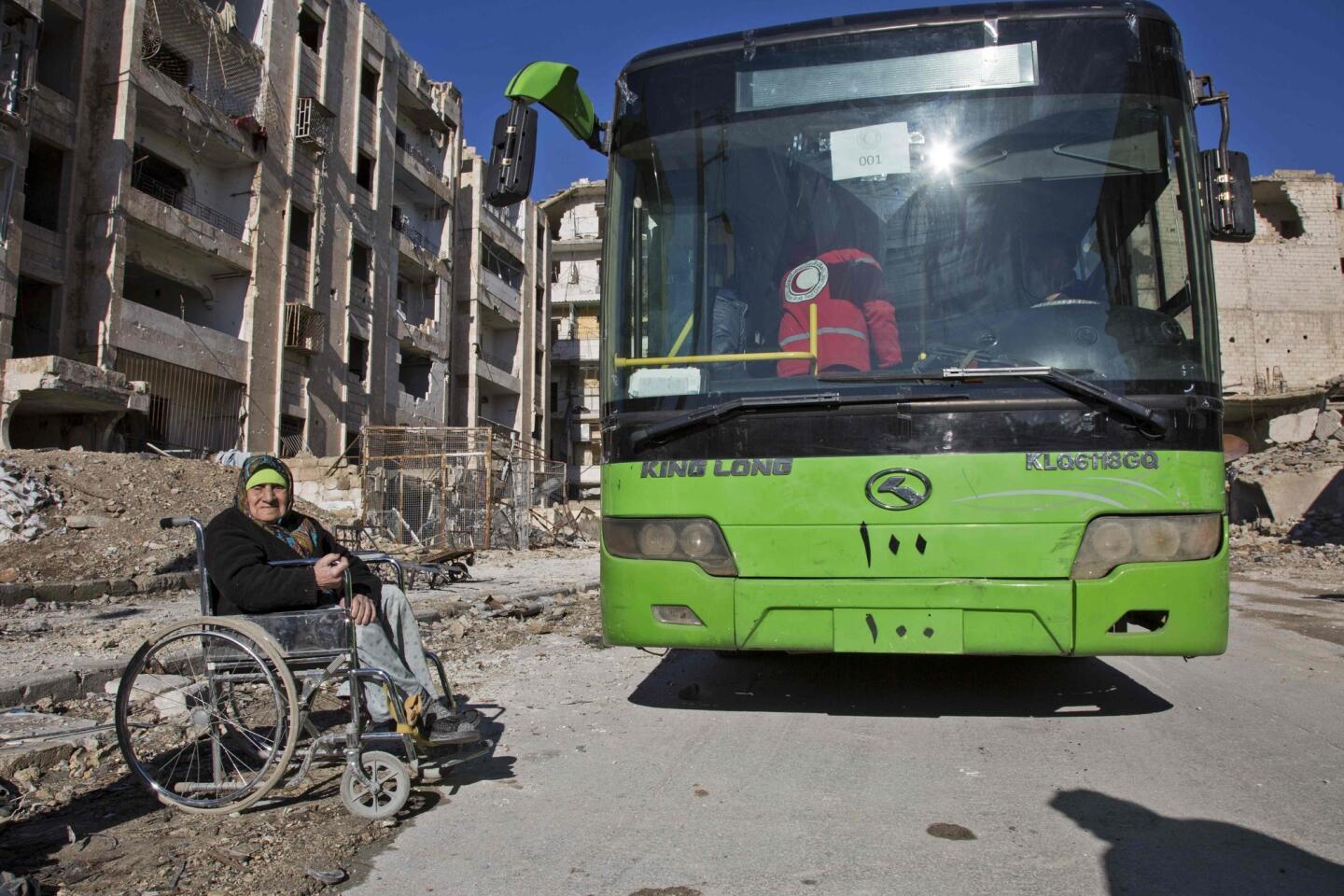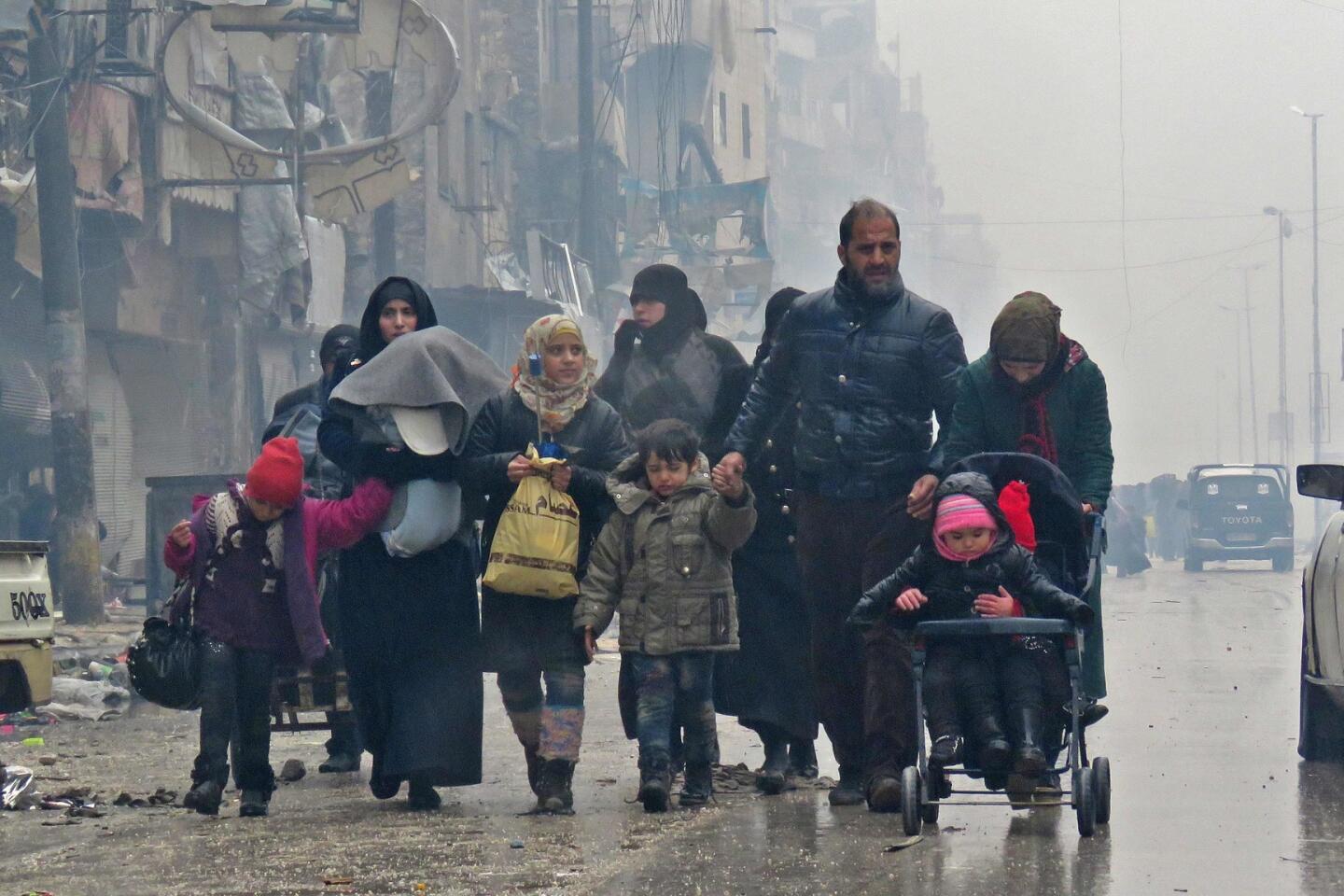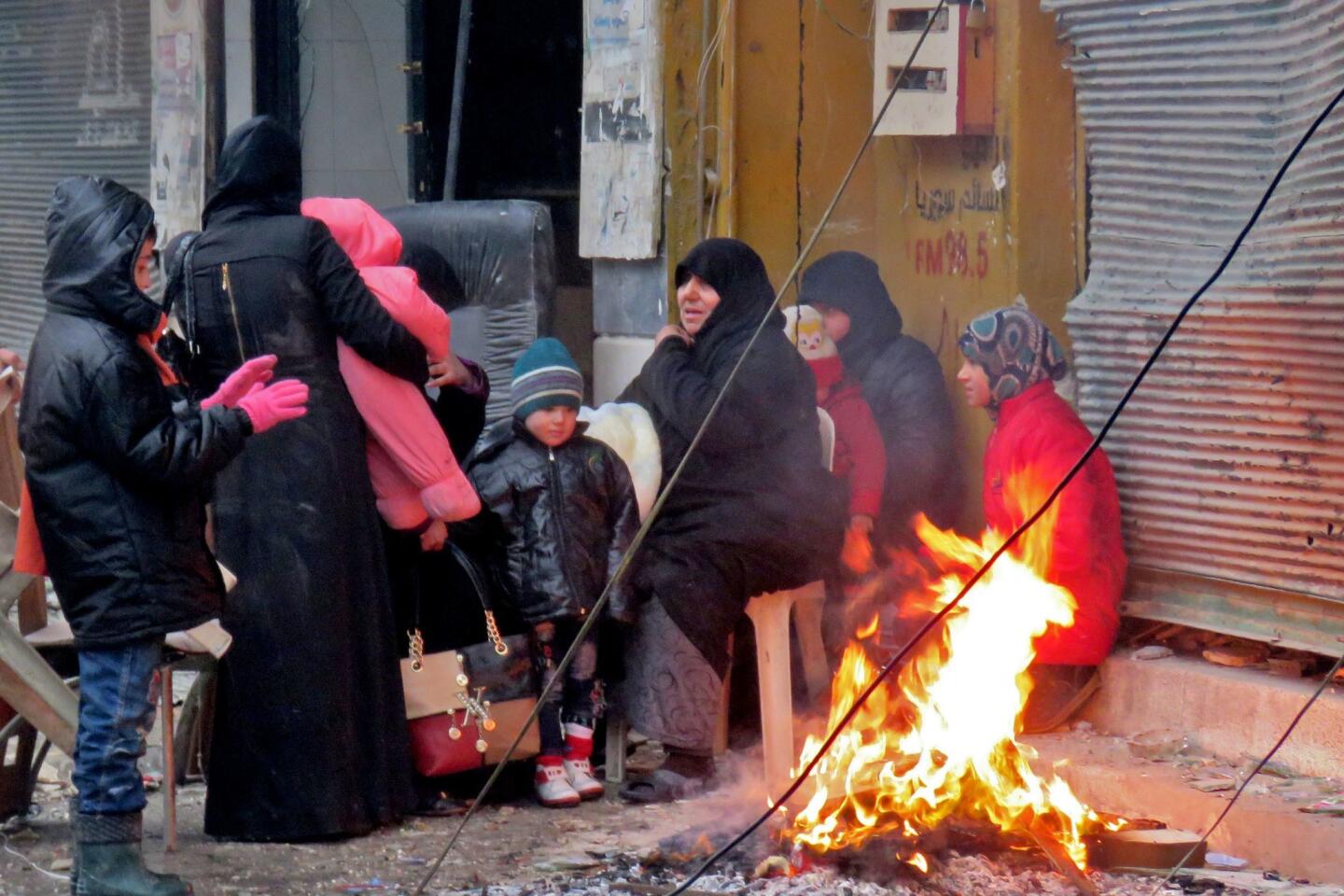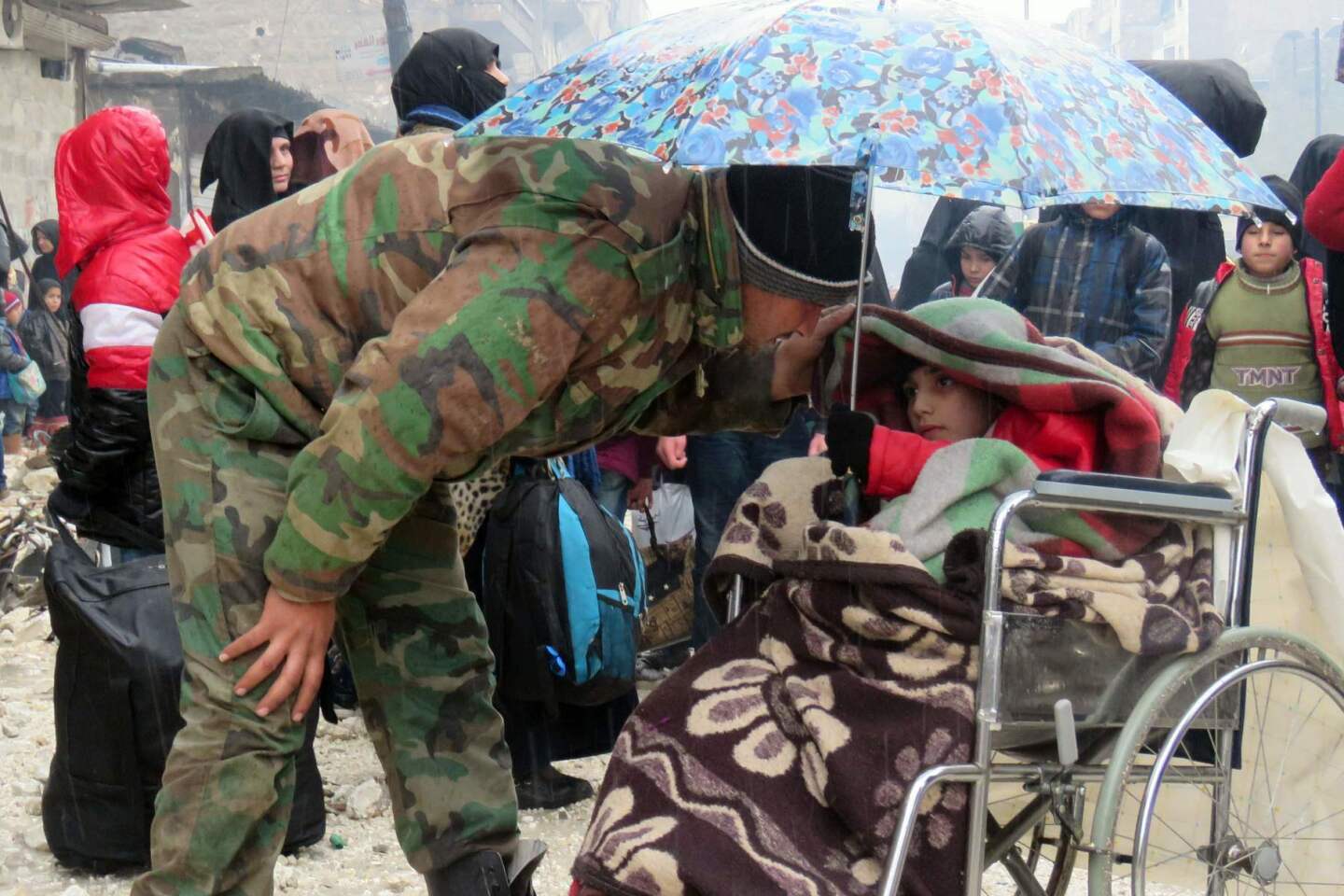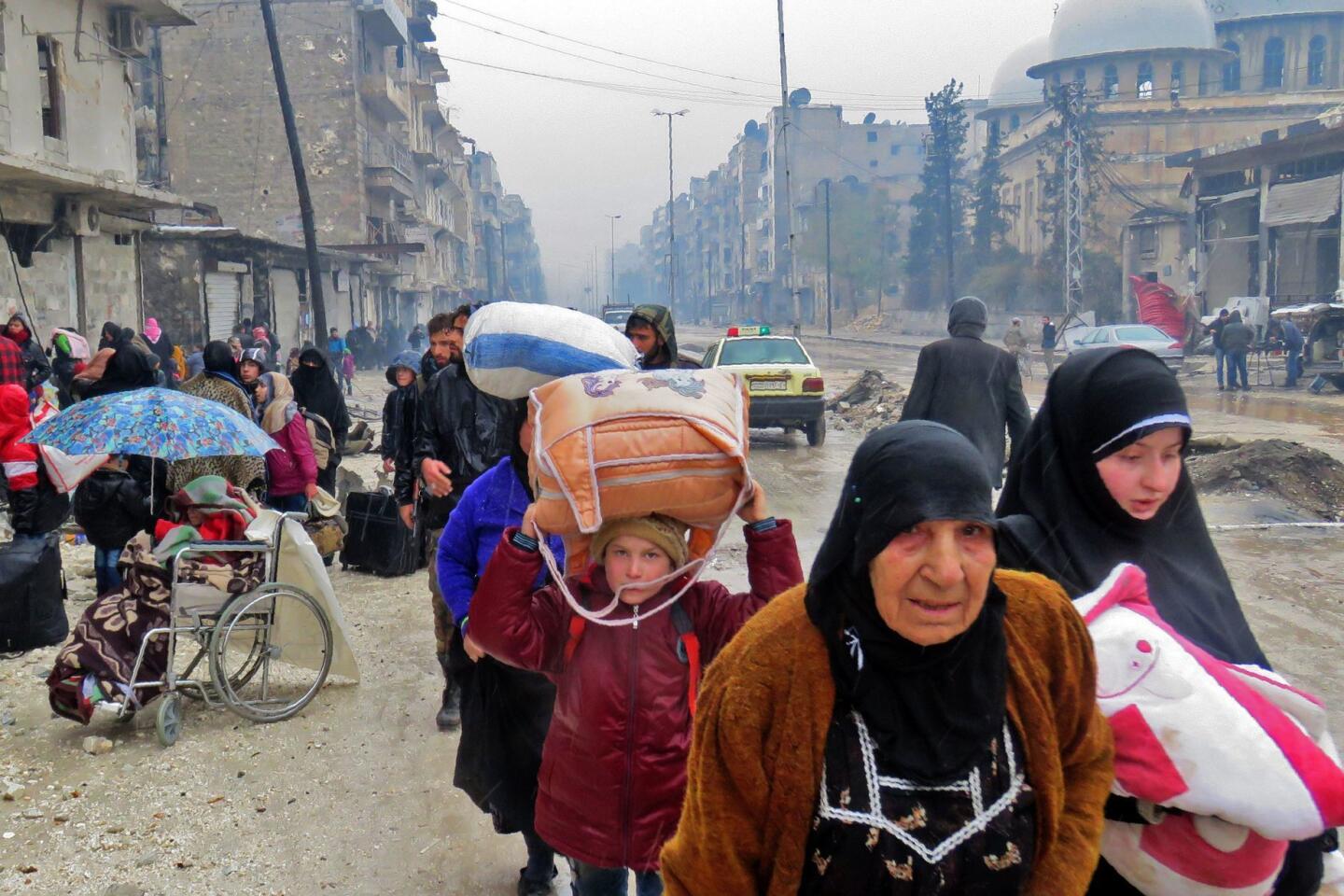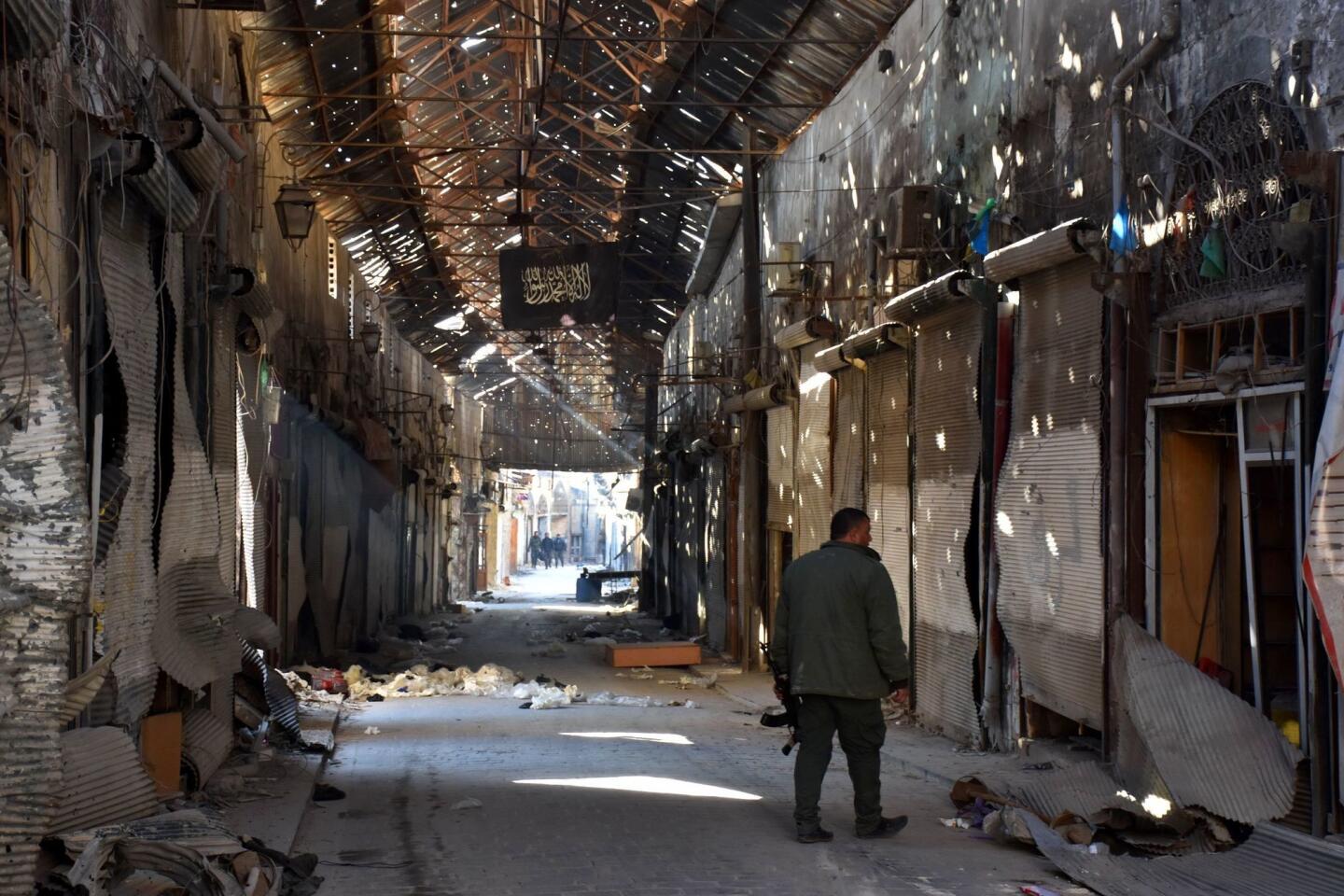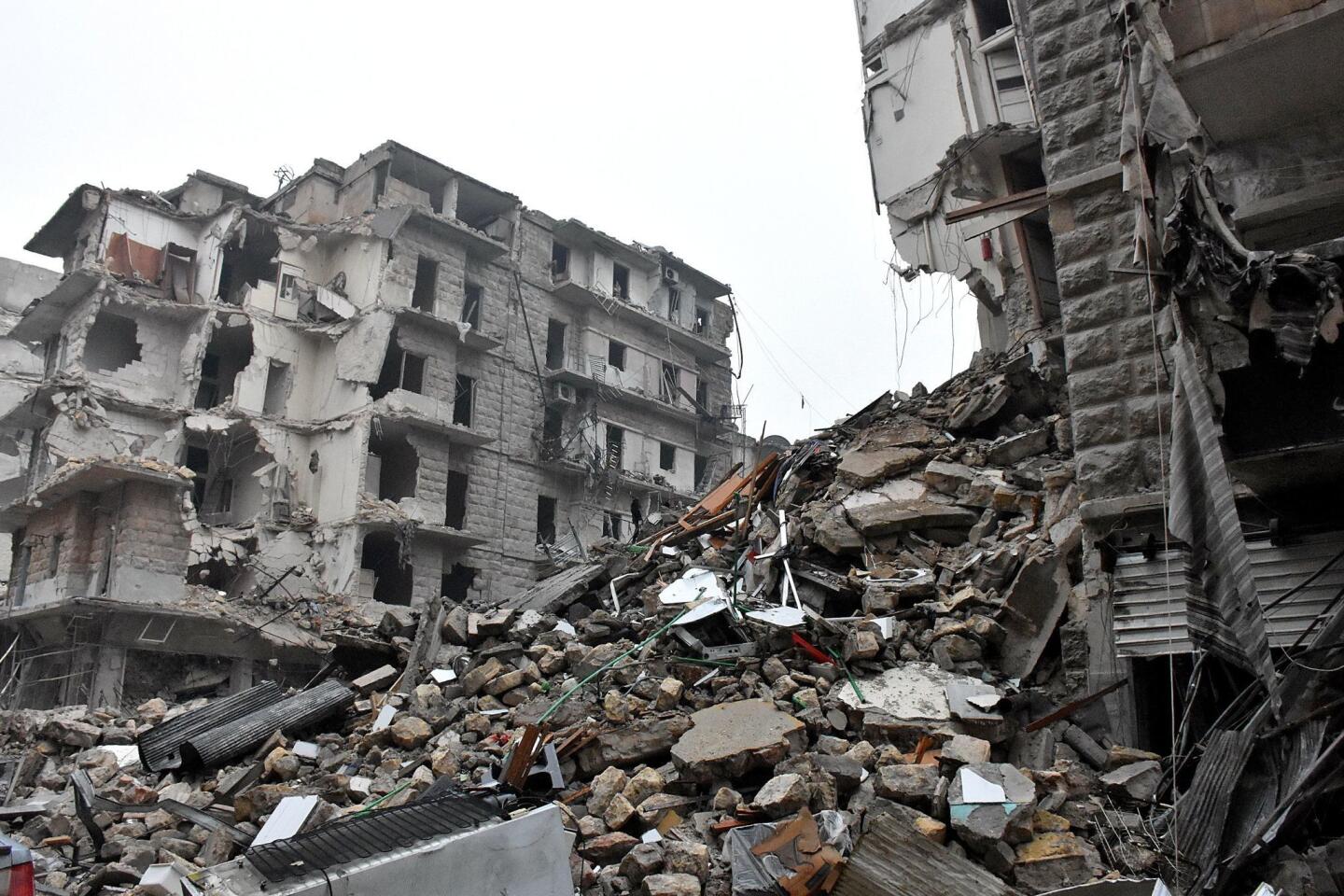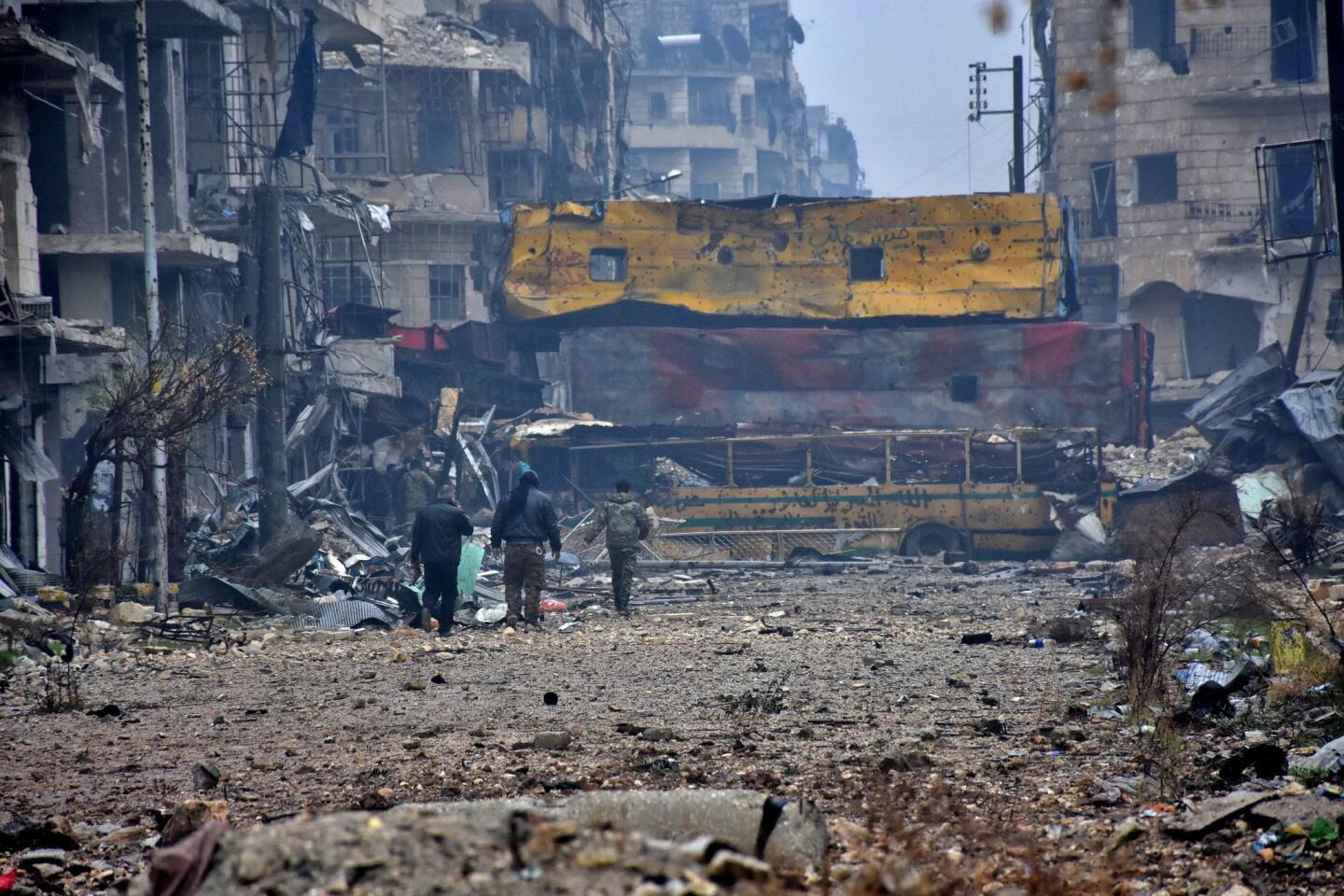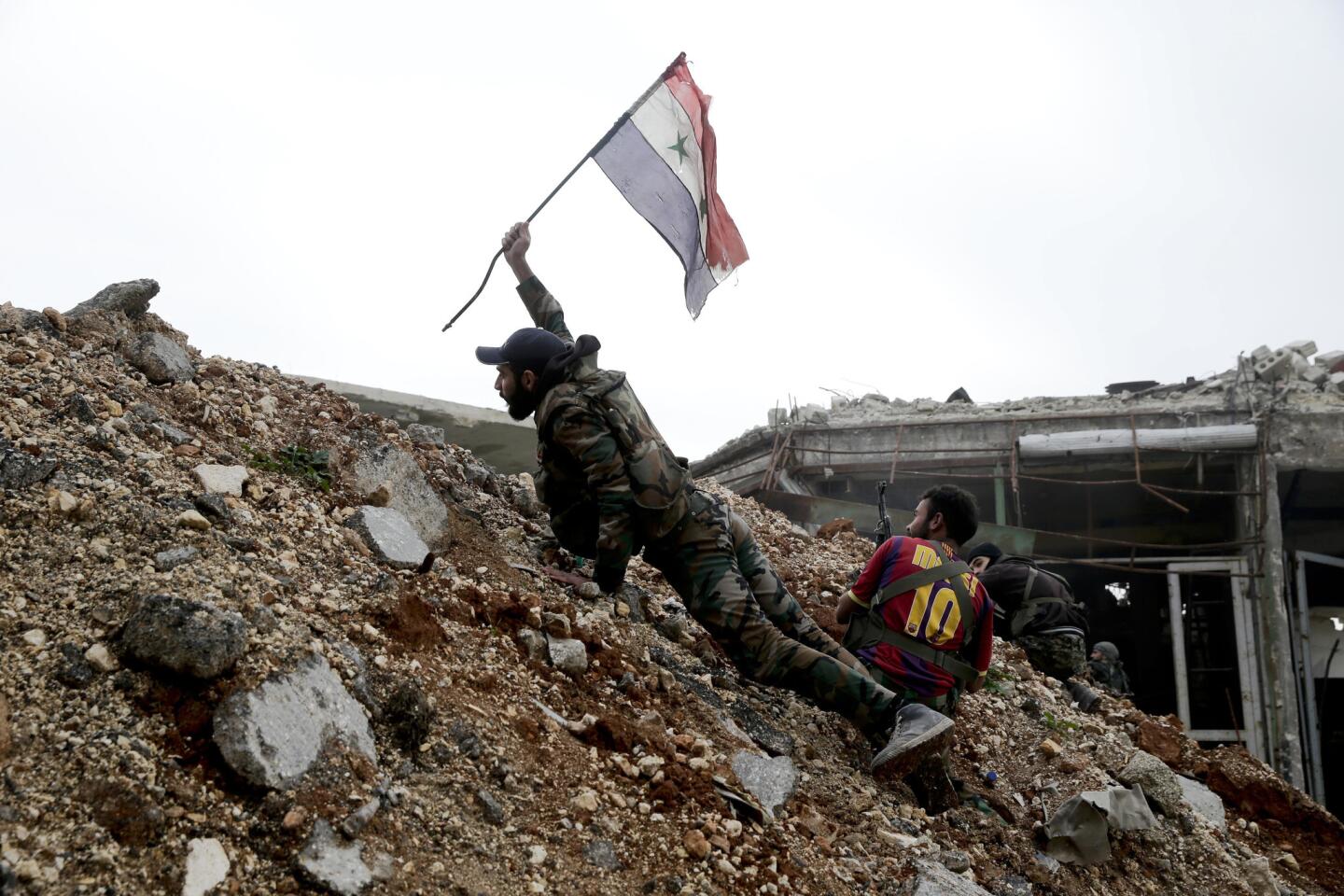The evacuation buses finally arrived – but Aleppo has descended back into violence
- Share via
Reporting from BEIRUT — The evacuation of Syrian rebels bunkered in their last remaining holdouts in the beleaguered city of Aleppo has been delayed, rebels and activists said Wednesday, as an 11th-hour cease-fire forged by Russia and Turkey broke down after only a few hours of calm.
The agreement, which called for a cease-fire to take effect late Tuesday night and have rebels leave their bastion early Wednesday, came as the government took near total control of the rebels’ enclave in eastern Aleppo. It represents the most significant achievement by the government of President Bashar Assad in the almost six-year civil war ravaging the country.
The deal would have allowed opposition fighters to exit from Aleppo’s southwestern flank toward countryside areas still in rebel hands, taking their personal weapons — a major point of contention that may have contributed to the scuttling of the arrangement.
On Tuesday, before the cease-fire went into effect, the United Nations said at least 82 civilians had been killed in fighting.
Late that day, the green buses used to shuttle opposition fighters out were reported to have arrived in Aleppo, according to pro-government groups. But they had remained empty, and residents from within rebel areas said there had been no evacuations.
Instead, the sounds of intense artillery and mortar shelling as well as sporadic gunfire could be heard once more after hours of calm overnight.
“I don’t know if you can hear it, but there are artillery and mortar strikes on the besieged areas,” Mahmoud Raslan, a pro-opposition activist, said via the WhatsApp messaging service on Wednesday. He said he was in Salah Al Din, a neighborhood at the very edge of the Syrian government’s advance.
Minutes later, he sent an audio recording of loud explosions in the area.
The Syrian Observatory for Human Rights, a pro-opposition monitoring group with a network of activists in Syria, said at least 10 people had been killed in the barrage hitting eastern Aleppo.
“Everything has collapsed,” said Rami Abdul Rahman, head of the Observatory.
Late Wednesday, Ahmad Qurah Ali, the spokesman for the hard-line Islamist group Ahrar Al Sham, said in a statement on social media that a cease-fire would start at midnight Damascus time.
The first group of the wounded and civilians would leave early Thursday morning, he said.
Activists and residents contacted in eastern Aleppo confirmed a significant reduction of hostilities in the wee hours of Thursday morning, but that there were still occasional sounds of gunfire.
One resident, Dr. Ghaith Suleiman, said in a Whatsapp message that he received word the evacuation would go through in the morning under supervision of the International Committee of the Red Cross.
Damascus and Moscow have yet to confirm any arrangement. Meanwhile, the Hezbollah-affiliated Central Combat Media outlet issued a report late Wednesday saying that all rumors regarding a cease-fire and “the exit of the gunmen” were completely untrue.
It was unclear why Tuesday’s deal had broken down.
The Russian Reconciliation Center, the Russian army’s monitoring body in Syria, blamed the rebels for the delay and the subsequent breakdown of the fragile truce, saying in a statement on Wednesday that “when the [buses] arrived at the agreed boarding site the militants opened fire on the column.”
Russia has been Assad’s closest ally, and its air power, deployed on behalf of the Syrian forces, effectively turned the tide of the battle in Aleppo.
The Reconciliation Center added that “the militants had taken advantage of the cease-fire to regroup … and resume combat operations,” but “the terrorists were rolled back.” The statement employed the Russian and Syrian governments’ standard description for the rebels arrayed against the rule of Assad.
“The Syrian army went ahead with the operation to retake eastern Aleppo’s quarters from the militants,” the Russian statement continued.
Zakaria Malahifji, spokesman for Fastaqim Kama Umert, an opposition faction fighting inside Aleppo, blamed the Syrian government and its Iranian allies for the breakdown, saying they had been displeased that the deal had been imposed on Damascus by Russia without consultation.
The Observatory for Human Rights said the issue was that the rebels had been all but defeated and that “the regime had gotten nothing in return for this agreement.”
Mayadeen, a Lebanese news channel that is close to the Assad government, said government and Iranian officials had insisted on evacuating the wounded in Fuah and Kefraya, two villages in the opposition-controlled province of Idlib that have been besieged for almost two years, and that vital humanitarian aid be allowed in.
In Washington, White House spokesman Josh Earnest sharply criticized both Russia and Syria, as well as Iran, another Assad ally. He said the United States was “working diligently through a variety of diplomatic channels” to resolve the situation.
“We continue to be deeply concerned about the situation in Aleppo,” he said at the daily White House press briefing. “We are seeing the same reports that you are, that innocent people are being slaughtered in the streets at the hands of the Assad regime, aided and abetted by the Russians and the Iranians. And it raises deep concerns. And it’s a deeply tragic situation. And these atrocities have to come to an end.”
Among those holding out in eastern Aleppo was Monther Etaky, 28, and his family — his wife, Walaa, 25, and their newborn son, Yazid.
“We will be slaughtered by them,” he said, speaking of the Syrian government forces. “We prefer to fight them and die like a tree, standing, not be annihilated.”
Etaky, speaking via WhatsApp late Tuesday, said he and his family had been forced in recent months to relocate to an abandoned apartment and live without running water and only sporadic electricity. But they had refused to leave, even after he watched his friends die in airstrikes and bombings and even when he had to spend his days hunting for food.
There was too much history for him to leave, he said, too many ghosts. “The criminal regime killed my friends,” he said.
Then the cease-fire was announced, and Etaky realized he might finally have to depart. “No way to stay in the city at all,” he said. “We just need to evacuate.”
But, he said, “It’s not good.”
Bulos is a special correspondent. Times staff writer Molly Hennessy-Fiske in Irbil, Iraq, contributed to this report.
MORE WORLD NEWS
In India, 19 moviegoers arrested for failing to stand when national anthem played before film
Afghan vice president accused of ordering sexual abuse of a rival he beat up in public
Rex Tillerson’s four decades at Exxon Mobil could hamper his role as America’s top diplomat
UPDATES:
3:15 p.m.: This article was updated to include reports of a possible new cease-fire deal.
2:25 p.m.: This article was updated with White House reaction and comments from an Aleppo resident.
4:20 a.m.: This article was updated with Times reporting.
2:40 a.m.: This article was updated with new details on the resumed fighting in Aleppo.
This article was originally published at 1 a.m.
More to Read
Sign up for Essential California
The most important California stories and recommendations in your inbox every morning.
You may occasionally receive promotional content from the Los Angeles Times.
